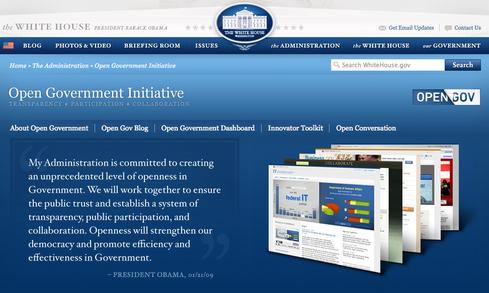Beth Noveck: “In order to change the way we govern, it is important to train and nurture a new generation of problem solvers who possess the multidisciplinary skills to become effective agents of change. That’s why we at the GovLab have launched The GovLab Academy with the support of the Knight Foundation.
In an effort to help people in their own communities become more effective at developing and implementing creative solutions to compelling challenges, The Gov Lab Academy is offering two new training programs:
1) An online platform with an unbundled and evolving set of topics, modules and instructors on innovations in governance, including themes such as big and open data and crowdsourcing and forthcoming topics on behavioral economics, prizes and challenges, open contracting and performance management for governance;
2) Gov 3.0: A curated and sequenced, 14-week mentoring and training program.
While the online-platform is always freely available, Gov 3.0 begins on January 29, 2014 and we invite you to to participate. Please forward this email to your networks and help us spread the word about the opportunity to participate.
Please consider applying (individuals or teams may apply), if you are:
-
an expert in communications, public policy, law, computer science, engineering, business or design who wants to expand your ability to bring about social change;
-
a public servant who wants to bring innovation to your job;
-
someone with an important idea for positive change but who lacks key skills or resources to realize the vision;
-
interested in joining a network of like-minded, purpose-driven individuals across the country; or
-
someone who is passionate about using technology to solve public problems.
The program includes live instruction and conversation every Wednesday from 5:00– 6:30 PM EST for 14 weeks starting Jan 29, 2014. You will be able to participate remotely via Google Hangout.
Gov 3.0 will allow you to apply evolving technology to the design and implementation of effective solutions to public interest challenges. It will give you an overview of the most current approaches to smarter governance and help you improve your skills in collaboration, communication, and developing and presenting innovative ideas.
Over 14 weeks, you will develop a project and a plan for its implementation, including a long and short description, a presentation deck, a persuasive video and a project blog. Last term’s projects covered such diverse issues as post-Fukushima food safety, science literacy for high schoolers and prison reform for the elderly. In every case, the goal was to identify realistic strategies for making a difference quickly. You can read the entire Gov 3.0 syllabus here.
The program will include national experts and instructors in technology and governance both as guests and as mentors to help you design your project. Last term’s mentors included current and former officials from the White House and various state, local and international governments, academics from a variety of fields, and prominent philanthropists.
People who complete the program will have the opportunity to apply for a special fellowship to pursue their projects further.
Previously taught only on campus, we are offering Gov 3.0 in beta as an online program. This is not a MOOC. It is a mentoring-intensive coaching experience. To maximize the quality of the experience, enrollment is limited.
Please submit your application by January 22, 2014. Accepted applicants (individuals and teams) will be notified on January 24, 2014. We hope to expand the program in the future so please use the same form to let us know if you would like to be kept informed about future opportunities.”

